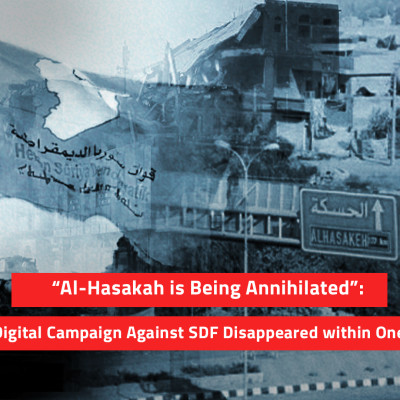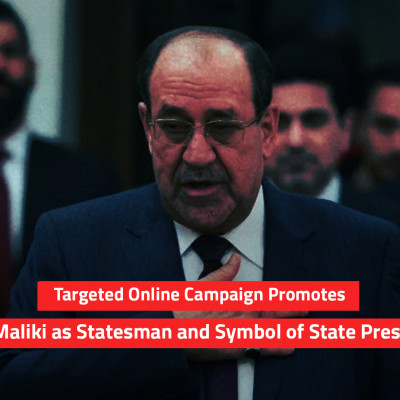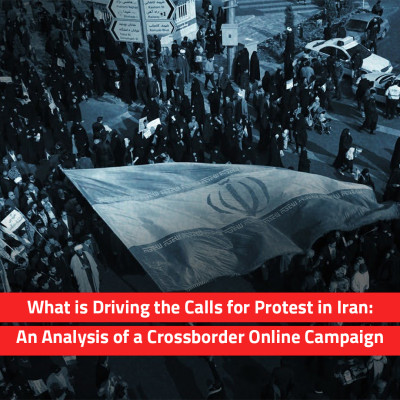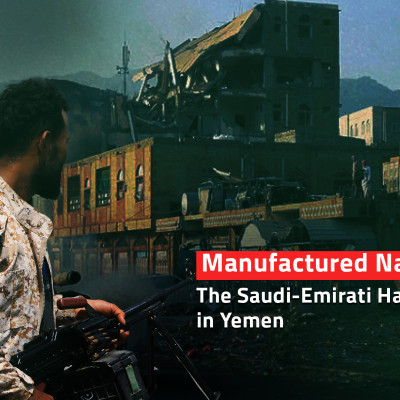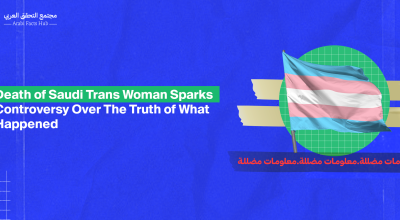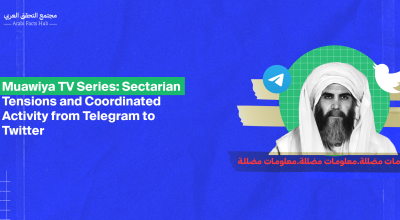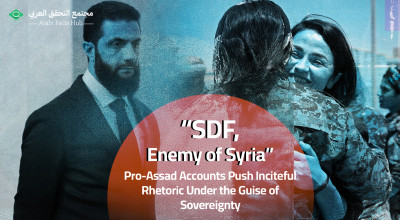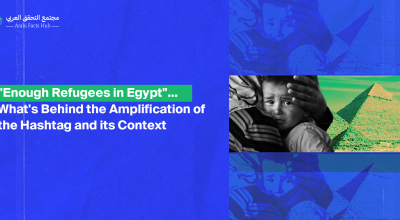Dispute Over Um Qasr: Fake Videos and False News Ignite Kuwaiti-Iraqi Conflict
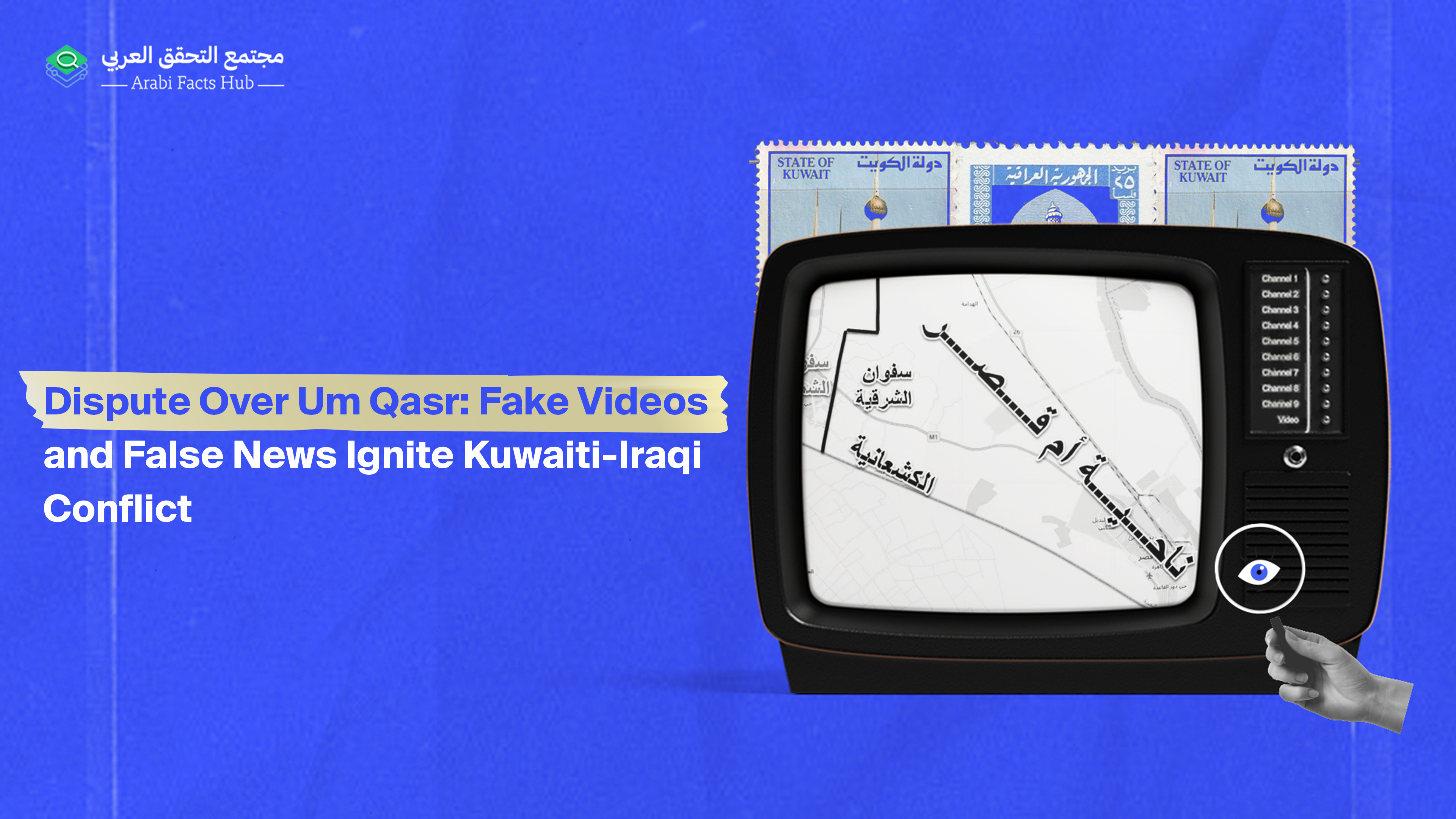
Dispute Over Um Qasr: Fake Videos and False News Ignite Kuwaiti-Iraqi Conflict
Remarks by the Kuwaiti Foreign Minister, Salem Abdullah Al-Jaber Al-Sabah, in early August, regarding the Iraqi side's "promises" to remove the homes of Iraqis in Um Qasr and hand it over to Kuwait, led to popular uproar, accompanied by online activities condemning Al-Sabah and criticizing what was perceived as a " concession" by the government of Mohammed Shia Al-Sudani regarding Iraqi territories.
Baghdad denied handing over the Um Qasr to Kuwait following the statement by Jaber Al-Sabah. It asserted that it upholds Iraq's sovereignty. But criticism on virtual platforms escalated, objecting to the demarcation of borders based on a United Nations resolution that was issued in 1993, three years after Iraq’s invasion of Kuwait, granting the latter lands previously controlled by Iraq.
Meanwhile, several hashtags appeared in the country's political debate, including tens of thousands of tweets. The government temporarily blocked Telegram, often used by Iraqi factions for their online campaigns. It stated that the ban was due to national security and social order concerns.
Fake accounts with unspecified geographic locations contributed to the wave of blogging that amplified the Umm Qasr crisis. They posted on the X platform (formerly Twitter) to magnify the debate and overshadow serious discussions from genuine accounts.
The Crisis Hashtagged
A decade ago, both Iraq and Kuwait agreed to establish a restricted zone, 500 meters on either side of the borders in the Umm Qasr region. Iraqi farmers were relocated to new homes, and the agreement stipulated that Kuwait would construct these houses.
The current anger surrounding the Um Qasr region is linked to concerns that Iraq’s ports are losing their strategic importance to Kuwait’s. Um Qasr Port handles 70% of Iraq's trade. Concurrent with this crisis, Kuwait is building a new port, the Mubarak Port, on Bubiyan Island, close to Um Qasr and the Iraqi border.
Supporters of the Iraqi government accused opposition groups of sparking the crisis to exploit it politically before the elections. Later, on September 5th, the Iraqi Federal Supreme Court ruled the unconstitutionality of the law approving the 2013 Maritime Navigation Agreement in Khawr Abd Allah; the waterway ships navigate through to reach the Um Qasr port, where the deep Iraqi waters are located.
This is accompanied by several hashtags that claimed that the government relinquished Iraqi territories, and opposed the border demarcation with Kuwait. Those included #We_reject_border_demarcation_with_Kuwait, #We_reject_the_sale_of_Um_Qasr), and #Um_Qasr_is_Iraqi.
These three hashtags have garnered over 49,000 tweets since they first appeared on July 31st last year, with their content being viewed 12.3 million times. The hashtags reached their peak on August 1st before they started their gradual decline, which coincided with the government's blocking of Telegram on August 6th, according to statistics from Meltwater, a leading media analysis and social media monitoring platform.
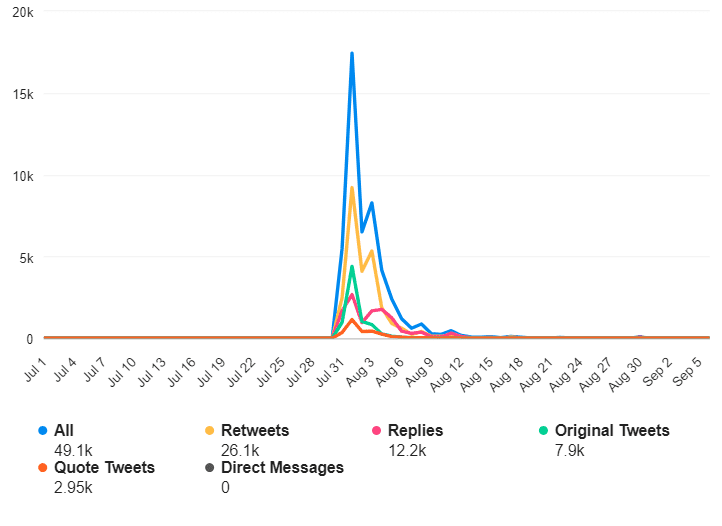
Most Influential
16,234 twitter accounts participated in the hashtag tweeting wave. Accounts with tens of thousands of followers played a critical role in popularizing and spreading the hashtags. Prominent tweets came from accounts representing various factions and political orientations, including some supporters of the former president Saddam Hussein's regime and the Sadr movement.
One influential account is Iraqi Minister – @IraqiWazir. The account published 1,959 tweets that were seen by 248 thousand accounts, and potentially reaching up to 900 thousand accounts, according to Meltwater.
The account was created in February 2020 and has over 196 thousand followers. Its user identifies as "an Iraqi citizen without a governmental job." However, in one of its tweets, it mentioned having occupied a “high position “ in the previous Prime Minister Adel Abdul-Mahdi's government. It also mentioned receiving assignments from the then Minister of Interior to analyze media discourse.
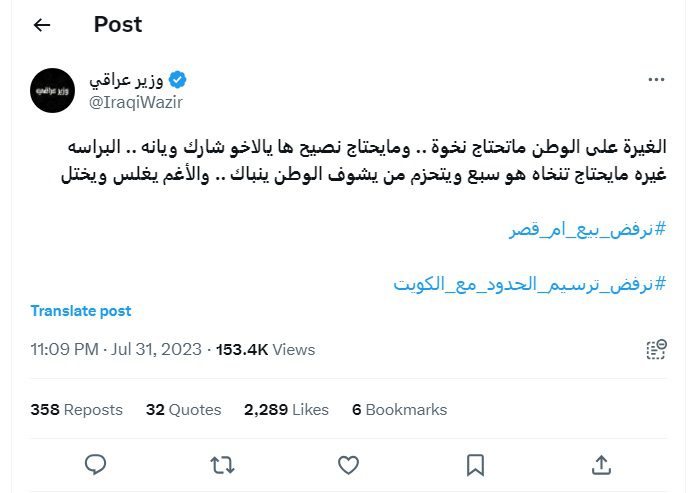
Accounts closely associated with the Sadr movement participated in the campaign. This includes the account of Safaa Al-Asadi @safaasde3, who has 130 thousand followers. Al-Asadi often appears as a political analyst on television channels. His opinions are aligned with the Sadr movement, and he occasionally engages in its online campaigns.
.jpg)
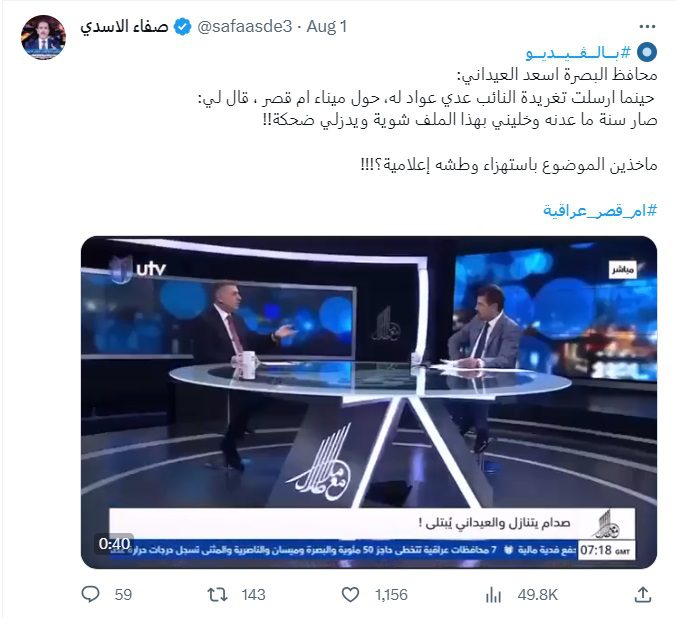 Some Kuwaiti accounts joined the conversation. They expressed support for the Iraqi government's alleged decision to implement the Um Qasr border agreement with Kuwait. The Kuwaiti influencer Fahad Al-Shleemi, with 758 thousand followers, who expressed opinions in favor of the agreement, is a case in point.
Some Kuwaiti accounts joined the conversation. They expressed support for the Iraqi government's alleged decision to implement the Um Qasr border agreement with Kuwait. The Kuwaiti influencer Fahad Al-Shleemi, with 758 thousand followers, who expressed opinions in favor of the agreement, is a case in point.
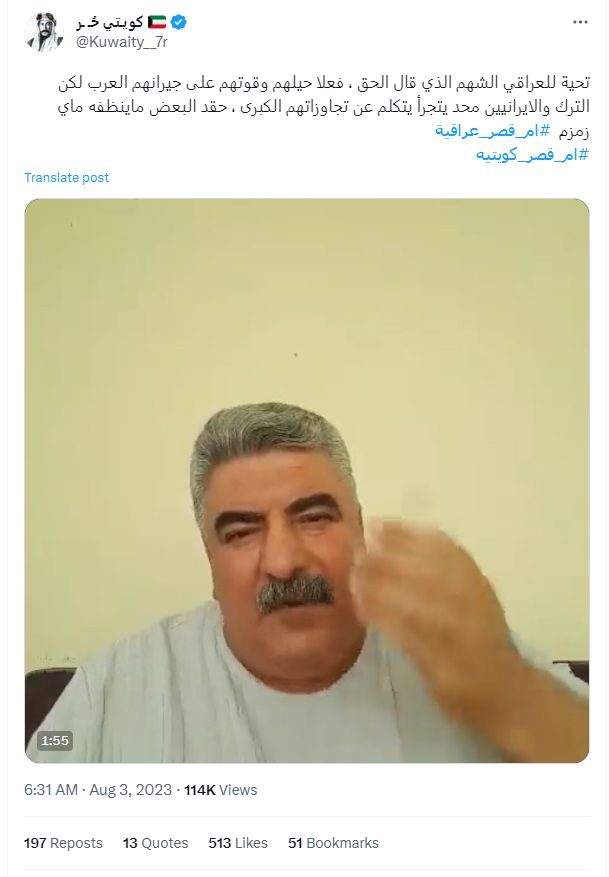
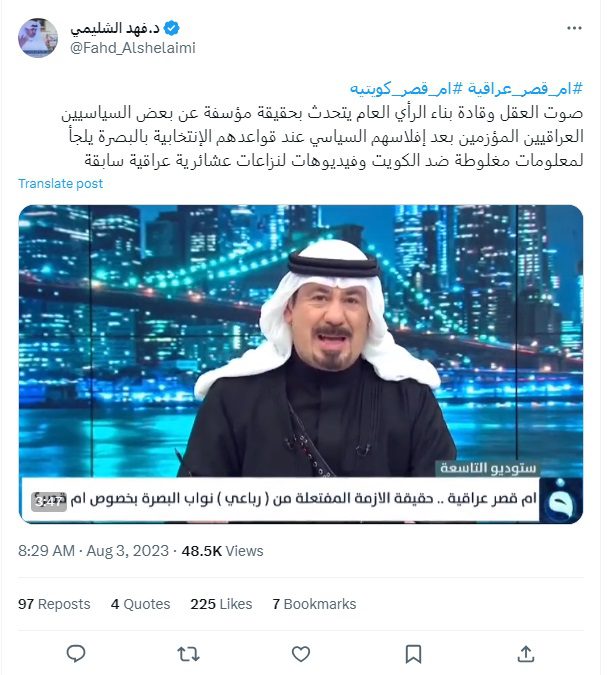
Repeated Content
The repetitive content and misleading and false information contributed to the increased popularity and dissemination of hashtags associated with the Um Qasr crisis. The quality of this content varied between visual materials and texts.
Accounts were active in the tweeting wave by repeatedly sharing the same content. Some of these accounts are associated with supporters of Saddam Hussein, featuring profile pictures of the former president. Others use images of Muqtada al-Sadr.
These accounts do not have a large following, and some are relatively new, created between June 2022 and July 2023.
For example, the statements, attributed to Saddam Hussein’s Foreign Minister Tariq Aziz, were posted: "These are not opposition... They are a group of thieves and highway robbers. If they were given a chance to rule Iraq for a day, they would loot its wealth and sell its land." The post was referring to the opposition that has come to power in Iraq.
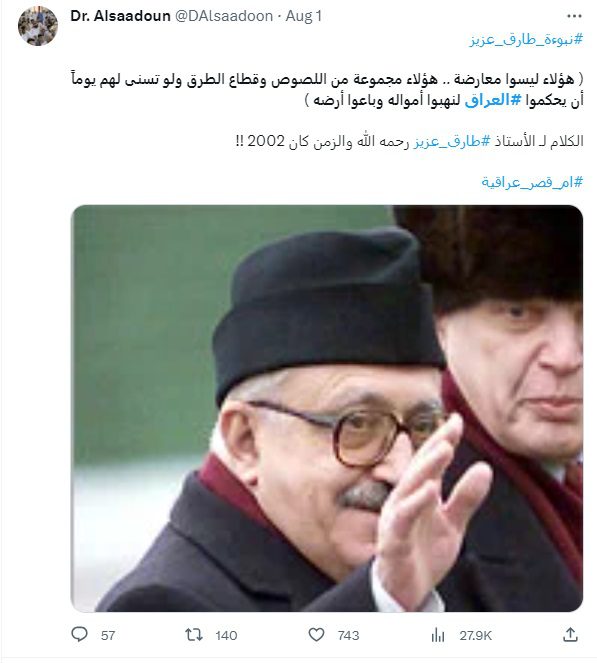
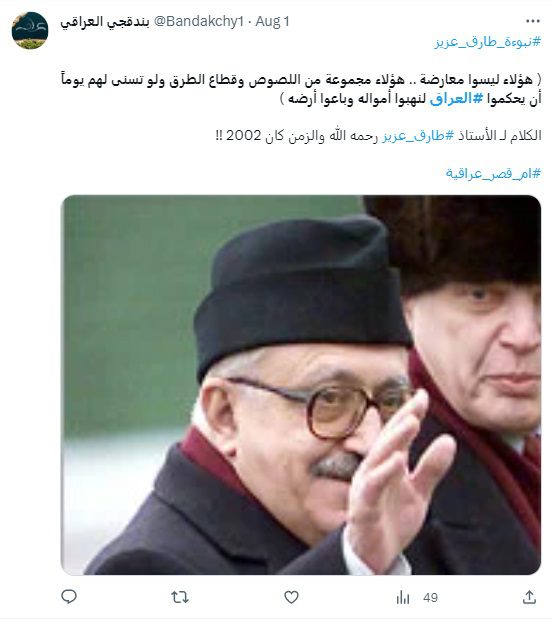
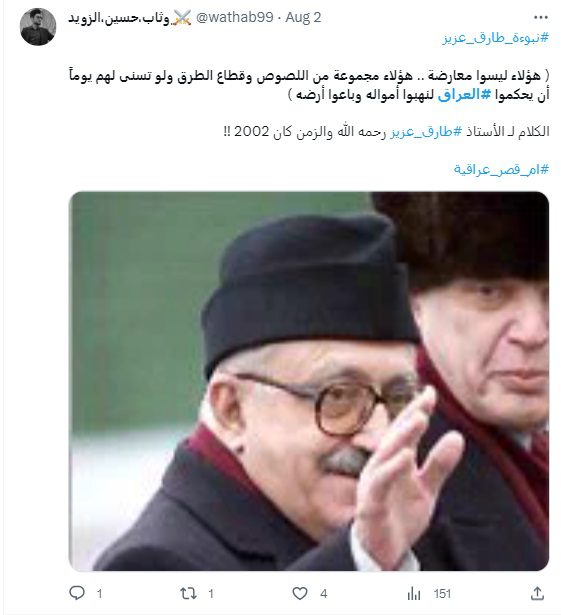
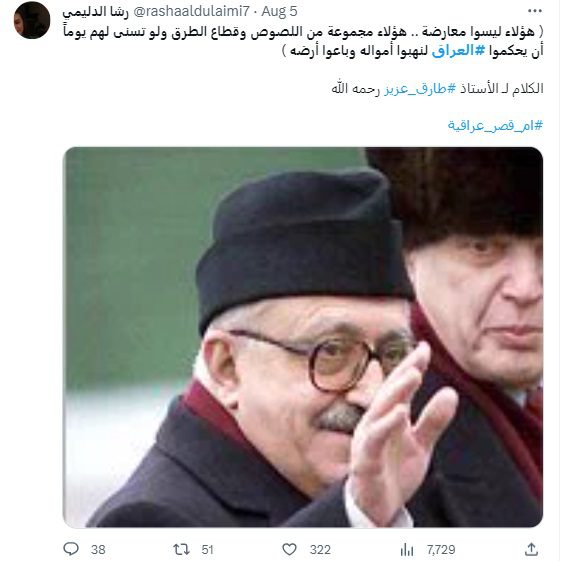
Misleading information spread widely, driven by posts from accounts with tens of thousands of followers, such as the accounts Iraqi Minister and Qusay Shafeeq. Concurrent with the visit of the Kuwaiti Foreign Minister, Iraqi Minister shared false information claiming the "sale of the Iraqi city of Um Qasr to Kuwait," an unconfirmed allegation. Then, the account of Qusay Shafeeq, who identifies as a journalist, echoed the same claims. Tweets by these two accounts reached at least 550 thousand people, according to statistics from the X platform (formerly Twitter).


Additionally, old video clips were circulated as recent protests in Basra and Um Qasr. One of these clips showing protests claimed that they were "massive protests by the people and tribes of Um Qasr rejecting its sale to Kuwait." But the video was, in fact, from Iran and dated back to protests against the increase in fuel prices in November 2019, according to Reuters' fact-checking service.
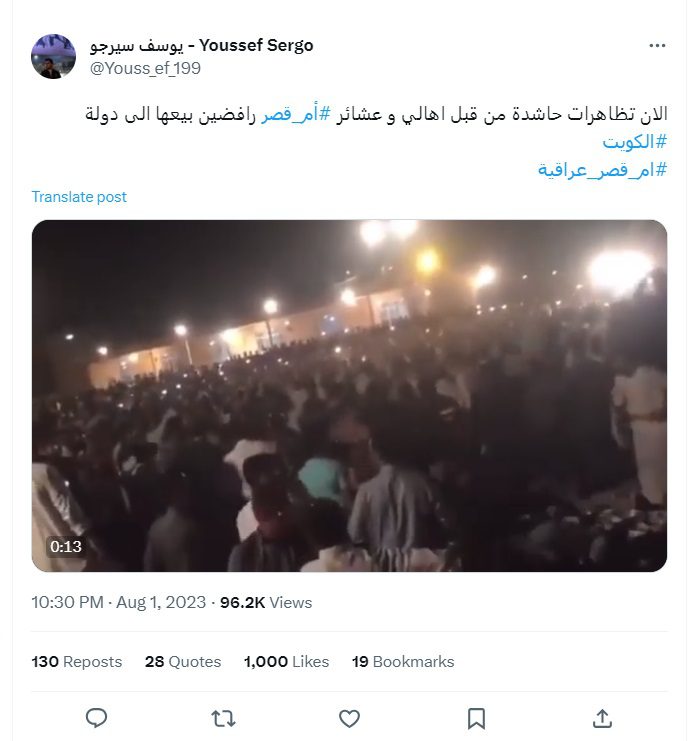
On August 4th, another video clip, seen by over 246 thousand people, circulated amid the ongoing controversy surrounding Um Qasr. It claimed that the "situation is inflamed in Um Qasr" following statements by the Kuwaiti Foreign Minister during his recent visit to Iraq. However, it was revealed that the video actually dated back to earlier protests in the region in March 2013.
Accounts also shared footage, seen by more than 60 thousand people, claiming to show Kuwaiti military mobilization on the border with Iraq due to the Um Qasr crisis. But the footage was taken from a longer video related to the second phase of the "Pearl of the West 2022" joint exercise involving the Kuwaiti and French armies at the end of the previous year.
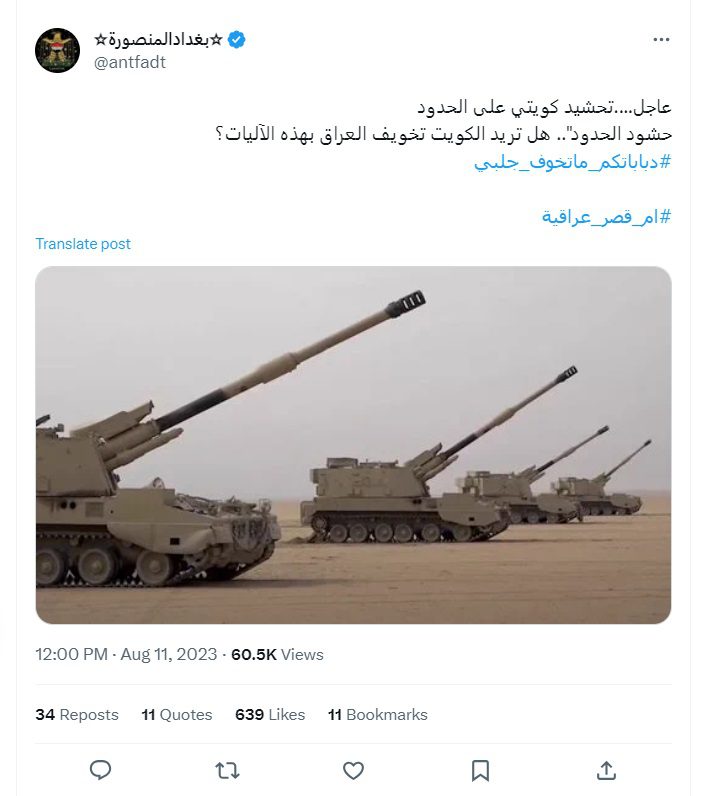
A network supports Iraqi-Iranian relations, and another retweets
Statistics from Meltwater indicate that 53 percent of the posts with the three hashtags on the X platform were reposts or retweets, and another 24.9 percent replies. The percentage of original posts was only 16.1 percent. Out of the total posts (48,986), 47,983 posts or tweets were from geographically unspecified locations, meaning the accounts did not specify the location from which they were tweeting.
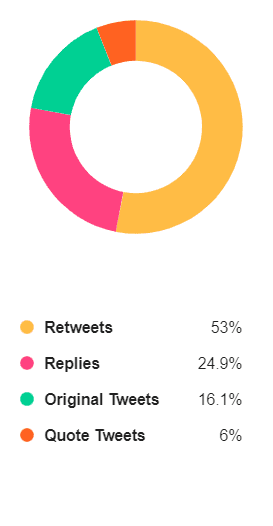
The previous statistics indicate coordinated activities, affirmed by various networks attempting to amplify the controversy surrounding Um Qasr. On the sidelines of the surge in posts, a group of accounts became active through replies, posting carefully designed posters that seem to emphasize that "there is no separation between Iran and Iraq."
The creation dates of these accounts converge. They first appeared on the X platform between the months of June and July. They do not publish any independent posts; but only interact through replies that do not even distinguish the accounts responding to them. Some of these accounts are associated with the Sadr movement, which does not lean towards Iran. This strongly suggests that these responses may simply be automated responses serving a specific propaganda purpose.
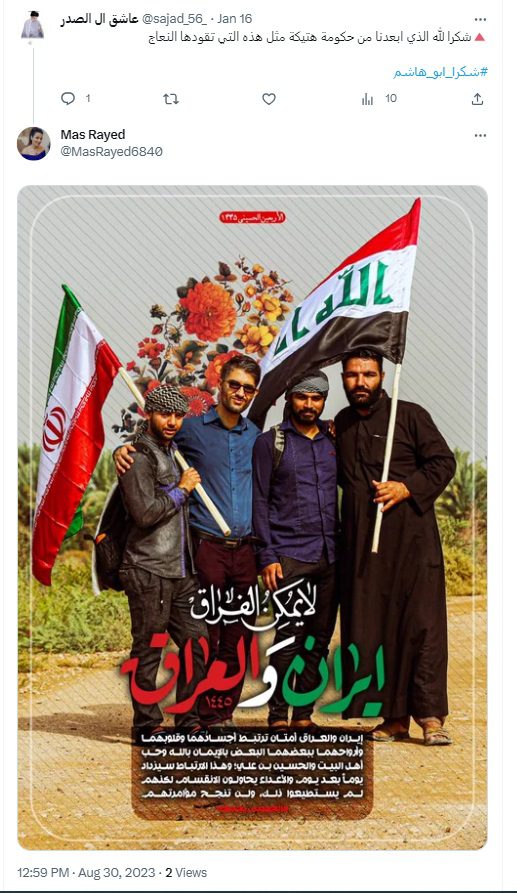
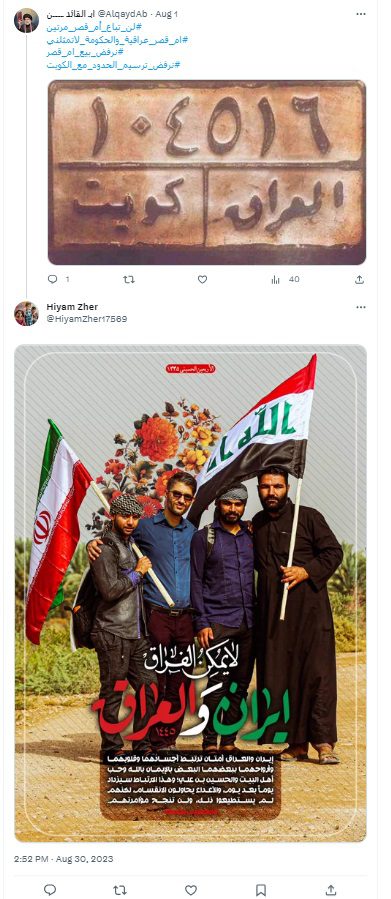
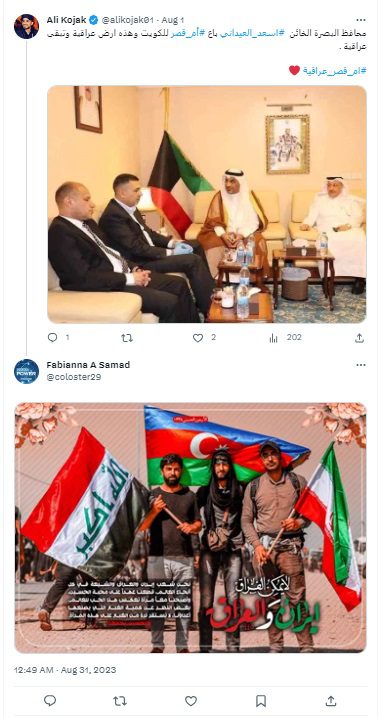
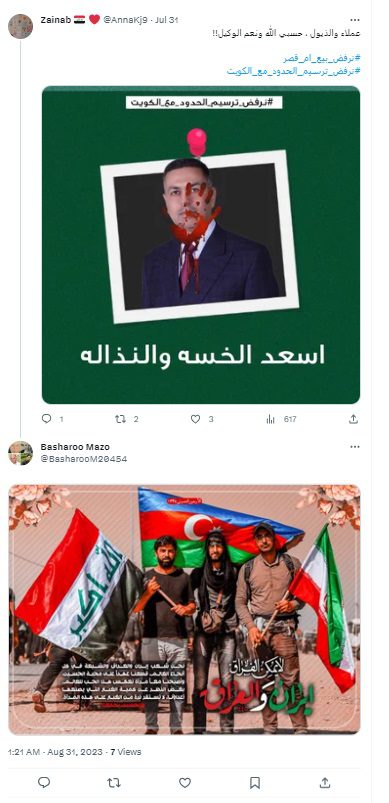
A network of fake accounts has been active in amplifying hashtags and increasing their spread by reposting or retweeting content. These accounts have foreign names, use provocative images, and have multilingual content. They were created in July 2023, as well as in September, October, and November of 2022. At least 3 accounts have used the same profile picture.
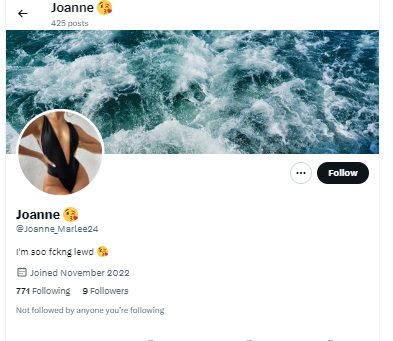
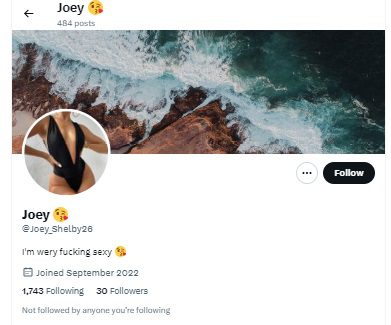
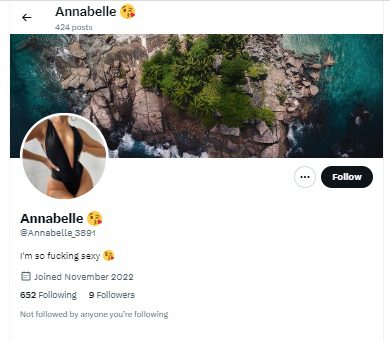
The numbers reveal that retweets constituted 53% of the total interactions with the Um Qasr hashtags, while replies accounted for 24.9%. Genuine/original posts made up only 16.1% of the total interactions. Accounts created in close proximity between 2022 and 2023 were employed to amplify the event, relying on misleading information and old video clips from previous years and different locations to achieve further visibility.
